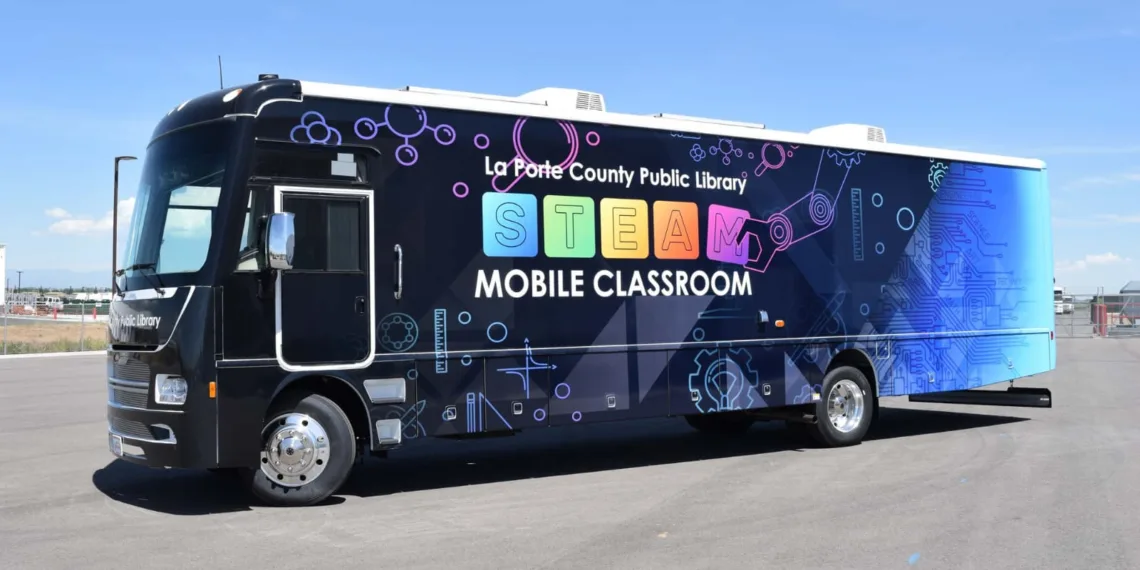In Jammu and Kashmir, where conflict transcends physical battles to include hearts and minds, Mobile Education Vans emerge as powerful tools for development and strategic outreach.
These vans, designed to deliver education to nomadic communities like the Gujjars and Bakarwals, also serve as platforms for shaping perceptions and countering misinformation in a region marked by hybrid warfare.
With nearly 1.5 million nomads-about 12% of J&K’s population-migrating seasonally near the Line of Control, their isolation, low literacy and exposure to cross-border propaganda make them a critical audience for fostering national unity and resilience.
The Gujjars and Bakarwals, who herd livestock across high-altitude pastures in summer and lower valleys in winter, embody a rich cultural heritage rooted in oral traditions and tribal bonds. Yet, their mobility disrupts access to education, with dropout rates reaching 62.7% from primary to elementary levels.
This gap, coupled with vulnerability to WhatsApp rumours and Pakistan-backed media, heightens risks of radicalisation in districts like Rajouri, Poonch, Kupwara and Kishtwar. State initiatives, such as the 25 migratory schools launched in Rajouri in 2018 to support 801 students, highlight the need to engage these communities. Mobile Education Vans address this by directly bringing education and civic awareness to remote settlements, strengthening trust in the state.
Rooted in welfare programs like the Indian Army’s Operation Sadbhavana, launched in 1998 to rebuild trust in conflict zones, Mobile Education Vans combine learning with subtle messaging. Equipped with solar-powered projectors, audio-visual tools and trained instructors, these vans deliver literacy, digital skills and health awareness. Beyond education, they promote national narratives, counter radicalisation and foster dialogue in under-governed areas. By integrating booklets on government schemes and two-way communication systems, Mobile Education Vans project the state and Army as partners, not adversaries, challenging the narrative of an absent or oppressive government.
In Jammu and Kashmir complex information landscape, perception management is key to aligning communities with national values. Mobile Education Vans achieve this by establishing a consistent state presence in remote areas, dispelling notions of neglect. Their content-videos, slideshows and storytelling-highlights the Army’s humanitarian efforts, such as flood rescues and showcases success stories of Gujjar and Bakarwal youth in civil services or military roles.
By emphasising India’s cultural pluralism and constitutional values, Mobile Education Vans reinforce a shared identity. They also combat disinformation by teaching communities to spot fake news and rumours, creating a shield against divisive propaganda. In a region where cognitive battles outweigh physical ones, Mobile Education Vans function as mobile psychological operations platforms.
Mobile Education Vans can be customized for youth through gamified learning and career guidance, women through health and rights awareness and elders through culturally resonant oral histories. Delivery methods, including Gojri and Pahari songs, puppet shows and QR codes linking to government portals, ensure accessibility and impact. Synchronised with civic programs, medical camps and national festivals like Independence Day, Mobile Education Vans amplify emotional resonance, fostering a sense of belonging.
Despite their potential, Mobile Education Vans face risks. Non-state actors may label them propaganda tools, while digital tampering or community scepticism could undermine trust. To counter these, Mobile Education Vans require multi-agency coordination involving civil administration, the Army, the police and NGOs. Content must be localised, vetted for authenticity and endorsed by tribal leaders to ensure credibility. Security measures, including route planning and real-time monitoring, are essential to protect operations. Above all, Mobile Education Vans must prioritise ethical communication-emphasising education, cultural respect and voluntary engagement over manipulation.
Mobile Education Vans should be formalised within J&K’s civil-military framework to maximise impact and integrate with the Ministry of Education and Tribal Affairs. The Army can facilitate operations, leveraging its Psychological Operation expertise to craft region-specific content. Technological upgrades like satellite internet and AI-driven sentiment analysis can enhance responsiveness. Expanding Mobile Education Vans scope to include legal awareness, anti-drug campaigns, skill training and voter education could transform them into comprehensive community hubs, fostering literacy and civic participation.
In Jammu and Kashmir evolving battlespace, where perceptions shape outcomes, Mobile Education Vans are silent warriors. They navigate the cognitive frontier, educating the underserved, countering hostile narratives and building bridges of trust. By empowering nomadic communities with knowledge and a sense of belonging, Mobile Education Vans do more than teach-they cultivate loyalty and resilience. Their success hinges on strategy, empathy and cultural sensitivity, ensuring that education becomes a tool for unity and strength in a region striving for peace


